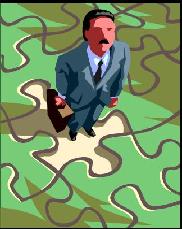
Now I may not be a conservative in most things, but there's one place where I don’t like people bending the rules, never mind changing them: and that's the Mass. I happen to believe that over 2000 years, heads wiser than mine -- and wiser than those of the current presbyterate -- have been hard at work crafting our liturgies until they are jewel-perfect.
Who am I, humble servant that I am, to mess with the best?
Evidently, that is not a sentiment shared by many of our ordained presiders. From my experience -- and ths is simply a number I am making up -- only about 10% of priests leave the Mass alone, presiding as it is presented in the Sacramentary, neither adding nor detracting significantly from its riches.
In this Loony Liturgy, I'll highlight examples of priests who leave things out of the Mass, for reasons that are unclear to everyone but themselves.
And even then I wonder!
Why did the Sign of the Cross the road?
After processing up the aisle, reverencing the altar and taking his position at the presider's chair (thus signaling to the choir that they had best wrap things up) the presider is supposed to start with the Sign of the Cross. Not "Good Morning" or a joke or a weather report, as many do. Still, most priests manage to recall the obscure fact that the Mass start with the Sign. Yet a few, evidently distracted by their bons mots, forget the Sign altogether, at which congregational worship stops in its tracks as everyone wonders whether it might pop up suddenly while they aren't paying attention.
The Case of the Missing Creed
The Nicene Creed (or its alternative, the Apostle’s Creed) is always included on Sundays and Holy Days. I happen to like the Creed, if you must know. While its precise, philosophical language makes it resemble the small print at the bottom of a mortgage application, it is long and lyrical and (if Father Mike isn't around) a chance for the assembly to partake of the wonderful experience of praying together.
But, lo! The Presider skipped right from the homily to the Prayers of the faithful! Again! Bad Father! But there's no turning back. The Creed is gone for another week.
In an alternative scenario, the priest mysteriously substitutes some version of the baptismal prayer (Do you believe in the Father? Do you believe in his Son?, etc) for the Creed. While this is legit when a baptism occurs during Mass, it's not so otherwise. Is Father bored? Does Father have a temperature? Does Father need a bottle? If not, lead the Creed!!
The Telltale Berakah Prayer
Aside from Alleluias and Amens, a very important part of Mass that seems to have been borrowed directly from Jewish worship: the Eucharistic Prayer. Specifically, the prayer over the Eucharistic bread that starts,
"Blessed are you, Lord, God of all creation. Through your goodness we have this bread to offer, which earth has given and human hands have made. It will become for us the bread of life."And later,
"Blessed are you, Lord, God of all creation. Through your goodness we have this wine to offer, fruit of the vine and work of human hands. It will become our spiritual drink."
To each prayer, the assembly responds, "Blessed be God forever."
I don't know about you, but there's something primal -- almost pre-Christian about those words, linking us back to the primitive Church which had to do without the well-parsed theology we have today.
They are familiar words. But are they really? How often do we actually hear these words, and how often do we get to say both instances of "Blessed Be God forever"?
I'd say you're lucky if you get to say both one Sunday out of five. Why? Because so many choirs are panic-stricken at the thought of a single moment when they aren't busy making music. So they fill in the least interesting point of the Mass -- the preparation of the altar and the presentation of gifts – with music -- the so-called Offertory Hymn. Nothing wrong with singing, I suppose, but not when the song covers over a nifty prayer -- not to mention two of the very few responses available to the assembly during Mass!!
_______________________________________________
Art: illustration from The VanDyke Technology Group, http://www.vdtg.com/culture.htm

No comments:
Post a Comment